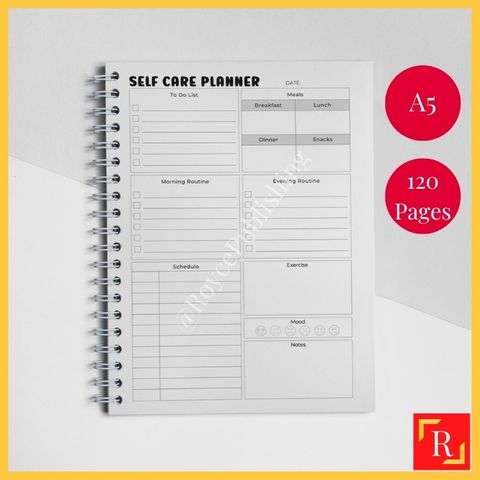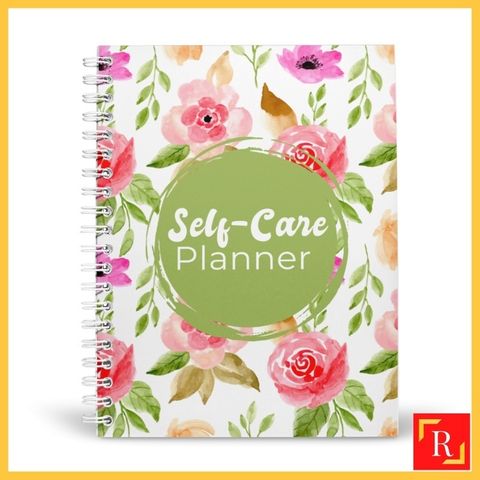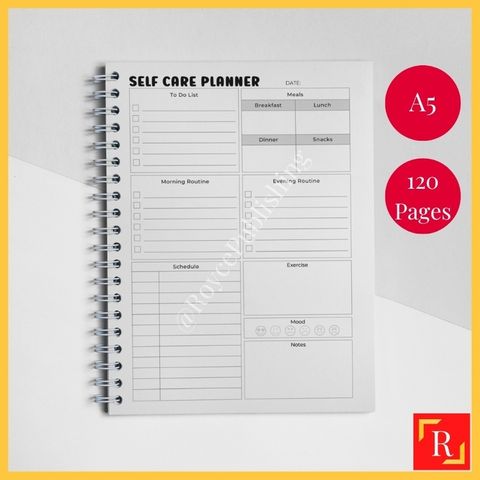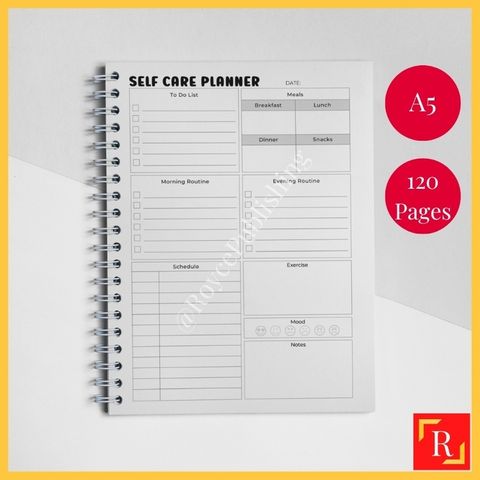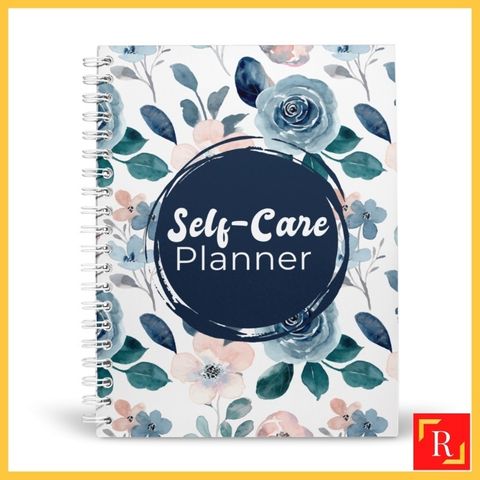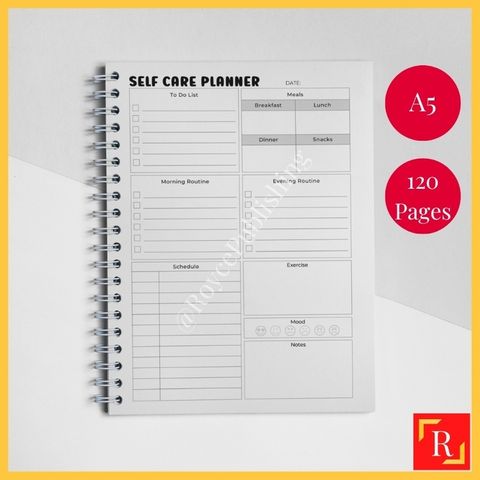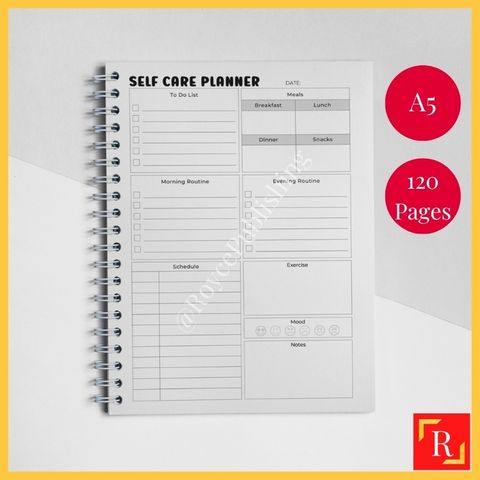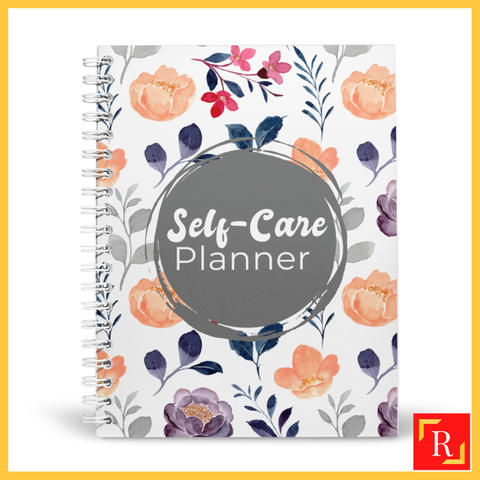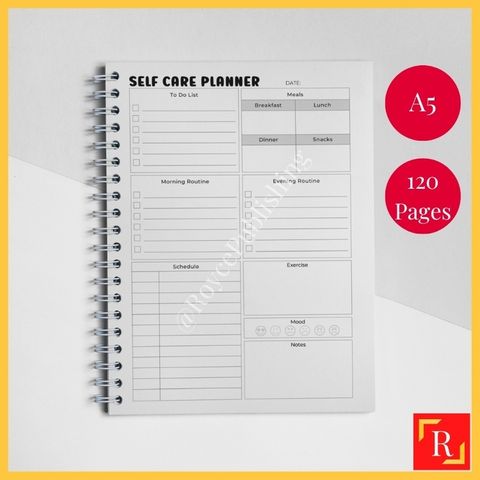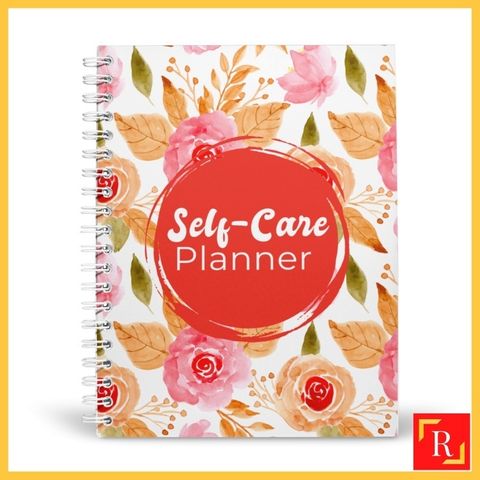
Journaling is often perceived as a therapeutic activity that allows individuals to express their innermost thoughts and emotions. However, for those who have been journaling for a while, it may become repetitive and mundane, losing its effectiveness in providing the desired mental and emotional release.
The irony of journaling is that while it is meant to be a self-care technique, it can become a chore that drains one's energy. To combat this, incorporating self-care techniques into your journaling practice can help you reconnect with yourself and enhance the benefits of journaling.
In this article, we will explore self-care techniques that can be incorporated into your journaling practice to promote mental and emotional well-being. These techniques will help you develop a deeper understanding of yourself, build resilience, and cultivate a positive outlook towards life.
By incorporating these techniques, you can transform your journaling practice from a mundane activity to a powerful tool for self-improvement and growth. So, let's dive into the techniques that can help you elevate your journaling practice and take your self-care routine to the next level.
Mindful Breathing Exercises
Mindful breathing exercises can be an effective technique to incorporate into one's journaling practice as a means of promoting mindfulness and reducing stress levels.
Breath awareness involves focusing one's attention on the breath and observing its natural rhythm. This technique is useful in reducing stress levels as it helps to calm the mind and regulate one's breathing.
Meditation techniques also involve mindful breathing exercises, and they have been shown to be effective in promoting relaxation and reducing stress levels. These techniques involve focusing one's attention on a particular object or sound, such as the breath, and letting go of any distracting thoughts or emotions.
Incorporating mindful breathing exercises into one's journaling practice can help to create a sense of calm and focus, making it easier to reflect and process one's thoughts and emotions. By promoting mindfulness, these techniques can also lead to greater self-awareness and improved mental health.
Gratitude Journaling
Expressing gratitude through journaling has been shown to have positive effects on mental well-being and overall life satisfaction. Gratitude journaling involves writing down things that one is thankful for, such as good health, supportive relationships, or a fulfilling career. This practice can help individuals focus on the positive aspects of their life and increase their sense of well-being. Furthermore, research has shown that gratitude journaling can lead to improved sleep, reduced symptoms of depression and anxiety, and increased resilience.
In addition to gratitude journaling, there are other techniques that individuals can use to cultivate a sense of gratitude. One such technique is the gratitude jar, which involves writing down things that one is thankful for on small pieces of paper and placing them in a jar. This allows individuals to physically see the things that they are grateful for and can serve as a reminder of the good things in their life.
Another technique is writing gratitude letters, which involves writing a letter expressing gratitude to someone who has positively impacted your life. This can not only increase feelings of gratitude but also strengthen relationships and social connections. Incorporating these techniques into a journaling practice can help individuals cultivate a greater sense of gratitude and improve their overall well-being.
Affirmations and Positive Self-Talk
Utilizing positive affirmations and self-talk can have a significant impact on one's mental well-being and overall attitude towards life. Daily mantras and positive self-talk can help individuals cultivate a more loving relationship with themselves, leading to increased self-confidence and self-esteem.
By incorporating affirmations into their daily journaling practice, individuals can create a powerful tool to promote self-love and positivity. One way to incorporate affirmations into journaling is to write down a list of positive affirmations and recite them every day. This can help to reprogram negative thought patterns and promote a more positive mindset.
Additionally, journaling can also be used to challenge negative self-talk and replace it with positive affirmations. By writing down negative thoughts and then challenging them with positive counter-statements, individuals can start to rewire their thought patterns and cultivate a more positive relationship with themselves.
With consistent practice, individuals can develop a more positive and loving attitude towards themselves, which can have a ripple effect on all areas of their life.
Reflective Writing Prompts
Engaging in reflective writing prompts can provide individuals with a valuable opportunity to explore their thoughts and emotions in a deeper and more meaningful way, allowing them to gain greater insight into their own experiences and perspectives. This type of writing involves taking a moment to reflect on a particular experience, feeling, or thought and then putting it down on paper. Reflective writing prompts can take many forms, including stream of consciousness writing, guided visualizations, and structured prompts. By engaging in this type of writing, individuals can gain a better understanding of their own thought patterns and behaviors, which can lead to personal growth and development.
To engage in stream of consciousness writing, individuals simply write down whatever comes to mind without censoring or editing themselves. This type of writing can be particularly helpful for those who struggle with self-judgment or perfectionism. Guided visualizations, on the other hand, involve imagining a particular scene or scenario and then writing about it. This can be a powerful way to tap into the subconscious mind and gain insight into one's own desires and motivations. Structured prompts can also be useful, as they provide a framework for reflection and can help individuals gain clarity on a particular issue or problem. Overall, incorporating reflective writing prompts into a journaling practice can be an effective way to promote self-care and personal growth.
| Stream of Consciousness | Guided Visualization |
|---|---|
| Write down whatever comes to mind without censoring or editing | Imagine a particular scene or scenario and then write about it |
| Helpful for those who struggle with self-judgment or perfectionism | Can tap into the subconscious mind and gain insight into one's own desires and motivations |
| No structure or framework | Provides a framework for reflection |
| Can be used as a form of meditation | Can be used to gain clarity on a particular issue or problem |
| Can be a powerful way to gain insight into one's own thought patterns and behaviors | Can be a powerful tool for self-discovery and personal growth |
Setting Intentions for Self-Improvement
Intention setting has been shown to be an effective strategy for individuals seeking to improve various aspects of their lives, including but not limited to personal growth and development. When we set intentions, we are essentially creating a roadmap for ourselves that guides our actions and behaviors towards a desired outcome. This process involves identifying specific goals and breaking them down into smaller, achievable steps. By doing so, we can increase our motivation, focus, and accountability, making it more likely that we will achieve our desired outcomes.
One way to enhance the effectiveness of intention setting is by incorporating habit tracking into our journaling practice. Habit tracking involves monitoring our daily behaviors and actions, noting when we engage in specific habits or activities and how often we do so. By tracking our habits, we can identify patterns and areas where we need to improve, giving us the opportunity to adjust our intentions accordingly.
Additionally, habit tracking can help us identify triggers or obstacles that may be preventing us from achieving our goals, allowing us to develop strategies to overcome them. By combining intention setting and habit tracking, we can create a powerful tool for self-improvement that can help us achieve our goals and live a more fulfilling life.
Conclusion
Incorporating self-care techniques into your journaling practice is an effective way to improve your mental and emotional well-being. Mindful breathing exercises can help reduce stress and anxiety, while gratitude journaling can increase feelings of happiness and contentment. Affirmations and positive self-talk can boost your self-esteem and confidence, and reflective writing prompts can help you process difficult emotions and experiences. Setting intentions for self-improvement can also help you achieve your personal goals and improve your overall life satisfaction.
According to a study by the University of Rochester, people who practice gratitude journaling regularly experience more positive emotions, better sleep, and stronger relationships with others. In addition, they are more likely to engage in self-care behaviors and have a higher sense of well-being overall.
By incorporating these self-care techniques into your journaling practice, you can experience similar benefits and improve your overall quality of life. Remember to take the time to prioritize your mental and emotional health. Journaling is a powerful tool that can help you process difficult emotions, set intentions for self-improvement, and practice self-care.
So, take a deep breath, grab your journal, and start prioritizing your self-care today.

